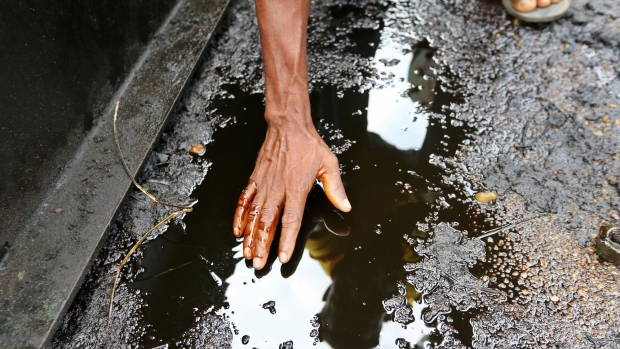Ghana facing possible end of its oil industry in 15 years without new reserves
Ghana’s crude oil production is experiencing a significant decline due to the peaking of its oil fields.
Dr. Steve Manteaw, Co-chair of the Ghana Extractive Industry Transparency Initiative, has emphasized that without new reserves, Ghana could face the end of its oil industry within 10 to 15 years.
This warning follows the 2023 report from the Public Interest and Accountability Committee (PIAC), indicating a fourth consecutive year of decreased crude oil production.
Dr. Manteaw pointed out that efforts by the Ghana National Petroleum Corporation (GNPC) to attract investors have not yielded substantial results.
Key challenges include the inadequacy of block sizes and data quality, which deter major investors like EXXON Mobil, who exited due to unfavorable block prices and insufficient oil finds.
“The last time I checked, we have produced half of Jubilee Fields, a third of TEN, and about a tenth of Sankofa Gye Nyame. So if we don’t add to our reserves, in a matter of 10 to 15 years, we will have no oil industry.
“Sometimes I feel we are even throwing money down the drain. The investments are not coming for obvious reasons; we had EXXON Mobil exit our oil industry, and their reason was the prices of our blocks and the quantum of finds they made. If we had bigger blocks, then they have a better prospect of finding oil in the right quantities that will get them value for money,” Dr Manteaw noted.
Mark Agyemang, PIAC’s Technical Manager, highlighted that the decline in production has been flagged since 2018 due to operational, regulatory, and governance issues.
No new petroleum agreements have been signed since then, exacerbating the decline. Jubilee, one of Ghana’s primary oil fields, is halfway through its 25-year lifespan, necessitating artificial measures to boost production.
“Jubilee is 12 or 13 years into its production life. It’s projected to have a lifespan of 25 years. Now it’s more like halfway through its production life. So you naturally expect a decline because reservoir pressure is being depleted.
“So they have to kind of adopt artificial measures, either gas injection, water injection, and the like to bring on stream more oil,” he quipped.
The PIAC report showed a drop in production from 71.44 million barrels in 2019 to 48.25 million barrels in 2023, averaging a 9.2% annual decline.
The Jubilee Fields accounted for 63% of the 2023 production, with the remaining from SGN and TEN fields.
Additionally, the report recommends that the government and regulatory bodies take steps to reverse the decline in existing fields and secure investments for unexplored fields.
The decrease in crude oil production and the potential depletion of reserves pose a critical challenge for Ghana’s oil industry, necessitating urgent and strategic measures to ensure its sustainability.










